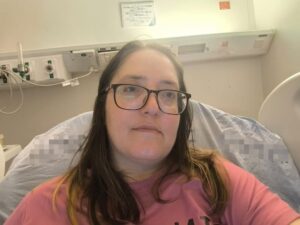As a parent of 3 teenagers (how on earth do I have 3 teenagers already???) the worry about them going down the wrong path and falling in with a bad crowd is obviously on my mind, as it is with parents of most teenagers. Often, this bad crowd is one that drinks and does drugs, which can be very dangerous and have both short and long term affects on their health, not to mention legal trouble that can follow them in life. If you are concerned about whether your kid is taking drugs, or just want to keep an eye out just in case, here are some things to keep in mind.
Drugs are becoming more and more commonplace in our society and becoming a part of a wider generation of people. Teenage years have always been a period where you have to keep an eye on your child as the temptation of going the wrong side of the tracks creeps in.
Experimenting with drugs, or worse still becoming addicted to drugs and falling down a pathway of requiring drug rehab, is among one of the biggest concerns of parents as we worry about their lives being destroyed, like so many horror stories we’ve heard in the media.
However, it is much more complex than that, and it is possible to turn their life back around too. If your child is taking drugs, it needs a calm, collected head and not jumping to anger and panic stations, despite that being your initial reaction.
Of course, you need to find out if your child is taking drugs first. If you do have your suspicions, here’s what you should be looking out for…
Changes in Behaviour and Mood
Firstly, one of the things you might notice is a shift in behaviour from your child. This can come in the form of mood swings, or several other key changes.
It is natural for children to change as part of growing up, but there are some things that may be a cause for concern and suggest that something else, such as drugs, have become an issue.
Secretive behaviour is a clear sign they are trying to hide something. That might come from lying about their whereabouts, hiding their phone or belongings, or just generally being a bit more reserved and avoiding conversations around you.
Other things to look out for include a drop in performance at school, mood swings as we’ve mentioned, and a loss of interest in hobbies or activities they previously enjoyed.
Physical Changes
Actually, you may start to notice visible changes in their appearance and health, particularly for their age and lifestyle. Things to look out for include red or bloodshot eyes, which can be particularly associated with cannabis, while unusual smells can often be a clear sign.
Weight changes without a particular reason could suggest certain changes in behaviour, while frequent nosebleeds or runny noses can be a sign of cocaine usage.
Finally, drugs can have a big impact on motor skills, so if you’re noticing slurred speech or poor coordination, it may be a good idea to take action.
Changes in Social Circles and Habits
Typically, you don’t tend to find that your child will start taking drugs with the friends that they’ve known for years and years and are comfortable around. It tends to be influenced by other peers and new groups of friends that they may be introduced to.
If your child has new friends that they’re a little more secretive about, then that could be something to keep an eye on. Other changes in habits might include isolation and withdrawal from family activities or longstanding social circles.
Things like late nights, asking for more money, or even stealing money from the house may also be telltale signs that need addressing to get an understanding of why their behaviour has changed.
Paraphernalia and Possessions
Naturally, if you’re finding things like pipes and rolling papers in your child’s room, then chances are they’re taking drugs. Even if they aren’t, they’re hanging around with people who are, and that’s a slippery slope.
Other things to take note of in their room could be small plastic bags or foil, strange odours, and burn marks on clothing. Unusual containers that may be used to store drugs should also raise concerns. If you come across any of these, it’s well worth sitting down with your child and having a conversation.
How to Respond if You Suspect Drug Use
A conversation is the first port of call if you do suspect your child of taking drugs. It’s incredibly important to remain calm and get a full understanding of the situation.
You should listen actively and have an honest and open conversation in surroundings they are comfortable with. It’s all about finding the extent of the problem and finding a solution, whether that be professional help or simply a change in friendship groups and a bit more support from yourself. Either way, it’s something that needs addressing to ensure their life stays on track.





